To Open Transport Links in the South Caucasus, Azerbaijan Needs to Avoid the term “Zangezur Corridor”[Over]  By Benyamin Poghosyan, PhD, Chairman, Center for Political and Economic Strategic Studies By Benyamin Poghosyan, PhD, Chairman, Center for Political and Economic Strategic Studies
Armenia always supported the idea of restoring communications and developing economic relations with Azerbaijan as a tangible way of confidence building. However Azerbaijan has to give up its inflammatory and disruptive rhetoric about the "Zangezur Corridor", and its thinly veiled threats to take over the Syunik province from Armenia.
The 10 November 2020 tripartite statement signed by Armenia, Azerbaijan and Russia ended the war in Nagorno Karabakh, but evidently, did not bring peace to the region. A range of complex issues remain to be settled – the future of Nagorno Karabakh, relations between Armenia and Azerbaijan, and the security dynamics of the broader region. Given the Russian military presence in Karabakh, the region's future now mostly depends on the Kremlin, and neither Armenia nor Azerbaijan has much room for manoeuvre here. The status of Karabakh will remain a topic in bilateral Russia–Azerbaijan and Russia–Armenia discussions, but Moscow will do whatever it thinks it is necessary to do. READ MORE
Containing China Is No Longer Possible Despite the Fact that Many Want To[Over]  By Benyamin Poghosyan, PhD, Chairman, Center for Political and Economic Strategic Studies By Benyamin Poghosyan, PhD, Chairman, Center for Political and Economic Strategic Studies
China was on everyone's lips at numerous summits and international gatherings in the last days and weeks. "China will be among the key world players throughout the 21st century; it will be the number one economic power, and all have to accept and adapt to this reality. Many are not happy with this prospect and would like to prevent it from becoming a reality, but no one has the necessary capacity to contain China, despite the fact that many want to, for the moment for doing that has passed."
While many states make efforts to eventually overcome the outcomes of the COVID 19 pandemic through a large-scale vaccination process, and seek to return to the pre-2020 life, geopolitics, somehow pushed to the corner by the disease, returns to the spotlight. Recent weeks saw a chain of global summits – G7, NATO, and the USA-Russia meeting. The world leaders discussed many topics – climate change, the restoration of the transatlantic alliance, relations with Russia. However, the most repeated word in all these gatherings was China. “Rise of China”, “China's challenge”, “assertive China”, “China-led world order”, “China hegemony in Asia” – this is perhaps not the complete list of China-related phrases. READ MORE
Russia-Turkey Relations after the Karabakh War: A View from Armenia[Over]  By Benyamin Poghosyan, PhD, Chairman, Center for Political and Economic Strategic Studies By Benyamin Poghosyan, PhD, Chairman, Center for Political and Economic Strategic Studies
Russia – Turkey relations are probably among the most discussed topics of Eurasian geopolitics. Experts and pundits are frantically searching for the correct terms to describe them – cooperation/competition, the marriage of convenience, and frenemies – all these words are used in endless efforts to grasp reality beneath the surface of high-level meetings and smiley handshakes of the leaders. The two countries interact in different regions – Middle East, Northern Africa, Black Sea basin, Central Asia, Western Balkans, and South Caucasus. In all these areas, they have overlapping and colliding interests, which have created a complex web of relationships. READ MORE
Armenia and Azerbaijan Should Restore their United Nations Recognized Borders [Over] 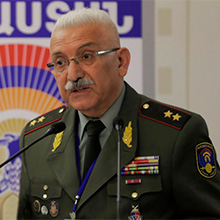 By Lieutenant General (Ret.) Hayk Kotanjian, D.Sc., Full Professor (Strategic Security Studies) By Lieutenant General (Ret.) Hayk Kotanjian, D.Sc., Full Professor (Strategic Security Studies)
The dynamics of the peace and war in the region surrounding Armenia attracts the keen attention of all actors promoting their international security interests in the explosive geostrategic space of the Greater Middle East.
In this context, the resolution of the border dispute in Syunik, and the issue of delimitation and demarcation of the borders between Azerbaijan and Armenia, which is the focus of international attention, requires academic and expert assessment of the legality to consider the current line of contact between the Armed Forces of the Republic of Armenia and the Republic of Azerbaijan as the starting point in the negotiations. The negotiating parties and the OSCE Minsk Group Co-Chair states - the Russian Federation, the United States and France - should take into account the evidence of the following internationally valid arguments. READ MORE
Armenia’s Reformers Struggle On[Over]  By Armen Grigoryan, Vice-president, Yerevan-based Centre for Policy Studies By Armen Grigoryan, Vice-president, Yerevan-based Centre for Policy Studies
After last year’s war, hopes that the 2018 revolution will fulfil its promise are fading – but it’s not too late for change.
“A stellar performance in one year is no guarantee of future success,” declared The Economist after Armenia held free and fair elections three years ago. The qualified praise was not without cause. It was always likely that Armenia’s attempts at democratic consolidation would be difficult, particularly because of the need for some unpopular reforms. Prior to the December 2018 parliamentary elections, observers noted that civic demobilisation – the influx of non-profit sector professionals to the government and their ensuing unwillingness to criticise it – could potentially undermine political pluralism, enable re-emergent authoritarianism, or foster the rise of right-wing populism. READ MORE
Polish-Romanian Defence and Security Policy[Over] 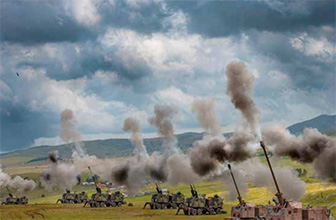 By Eugene Kogan, Tbilisi-based defence and security expert By Eugene Kogan, Tbilisi-based defence and security expert
A joint initiative of Romanian President Klaus Iohannis and Polish President Andrzej Duda, known as the ‘Bucharest Nine', was launched in November 2015 and laid a foundation for foreign and security policy meetings and discussions. As the next step, the Warsaw NATO Summit in July 2016 accelerated military-to-military cooperation. As a result, the initiative brought Romanian troops to Poland and Polish troops to Romania on a rotational basis in March 2017. In addition, their pivotal positions in the east and in the south of NATO’s reach have further increased their cooperation in a variety of defence and security programmes. READ MORE.
Russian-Turkish Relations: Moscow Calls the Tune[Over] 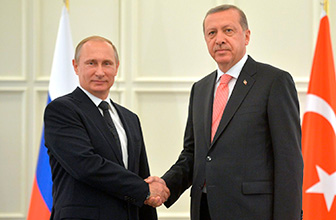 By Eugene Kogan, Tbilisi-based defence and security expert By Eugene Kogan, Tbilisi-based defence and security expert
The relationship between Russia and Turkey is an unequal one. Turkish President Recep Tayyip Erdoğan does not like playing second fiddle in the Russian-Turkish orchestra, conducted by Russian President Vladimir Putin. However, at every twist and turn, Putin holds more leverage over Erdogan than the other way around.
Putin will cooperate with Turkey as long as it suits Russian interests. He would quickly end the relationship if Turkey were to turn against him and tried to return to the Western fold from which it has drifted away ever since the failed coup on 15 July 2016. Erdoğan is aware of this and, as a result, is leading Turkey ever deeper into the Russian fold since the European Union, the United States and NATO all remain suspicious of him and his administration’s goals and are simply unwilling to assist him in his various military activities in Libya, Syria and, most recently, in the South Caucasus. READ MORE.
“All against All” or “All against Nikol”?[Over]  By Benyamin Poghosyan, PhD, Chairman, Center for Political and Economic Strategic Studies By Benyamin Poghosyan, PhD, Chairman, Center for Political and Economic Strategic Studies
Alliances are being formed between Armenian political parties ahead of the 20 June parliamentary elections. Whilst they all claim to want to oust current prime minister Nikol Pashinyan, they are all also busy competing against each other. Despite this, the next Armenian government is likely to be a coalition government.
As Armenia approaches the snap parliamentary elections scheduled for 20 June 2021, the political parties are making final arrangements to form alliances and clarify their positions. The incumbent Prime Minister, Nikol Pashinyan will participate in the elections with his “Civic Contract” party. The second and the third Presidents of Armenia – Robert Kocharyan and Serzh Sargsyan have also clarified their positions. READ MORE
Russian Goals in the Armenian Snap Parliamentary Elections[Over]  By Benyamin Poghosyan, PhD, Chairman, Center for Political and Economic Strategic Studies By Benyamin Poghosyan, PhD, Chairman, Center for Political and Economic Strategic Studies
Armenia is actively preparing for the 20 June 2021 snap parliamentary elections. Political parties are making their final calculations regarding the format of their participation. The main battle will probably occur between the incumbent prime minister, Nikol Pashinyan, and the second president of Armenia, Robert Kocharyan. The latter has already confirmed that he will lead an alliance of two or three parties. The Armenian Revolutionary Federation, the “Motherland” party, established by the former director of the National Security Service, Artur Vanetsyan, and the new “Rebirth Armenia” party established by the former governor of the Syunik region, Vahe Hakobyan, which unites several mayors from the Syunik, may create an electoral bloc under the leadership of Robert Kocharyan. READ MORE
US-Turkey Relations: CAATSA and Beyond[Over] 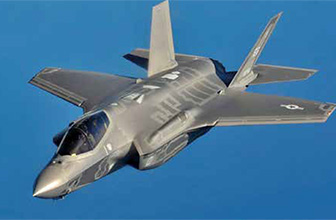 By Eugene Kogan, Tbilisi-based defence and security expert By Eugene Kogan, Tbilisi-based defence and security expert
US-Turkey relations have a history of challenges in general but with the ascent of Prime Minister Recep Tayyip Erdogan in 2001, the challenges reached their peak with the failed coup of 15 July 2016 that Erdogan blamed on the US-based cleric, Fethullah Gulen.
By becoming the first elected executive President of Turkey, Erdoğan has also transformed Turkey from a secular, democratic and reliable Western allied regime guarding NATO’s South-Eastern flank to an Islamic, nationalist and autocratic regime. Erdoğan’s policy is undermining the foundation of US-Turkey relations. This article outlines three cases that highlight the undermining of this relationship: S-400 vs. F-35; Halkbank; the Turkish citizens working at the US Consulate General becoming targets of politically-motivated legal charges. READ MORE.
Searching for the Right Formula for South Caucasus Regional Co-operation[Over]  By Fuad Shahbazov, Baku-based independent regional security and defence analyst By Fuad Shahbazov, Baku-based independent regional security and defence analyst
President Erdogan’s initiative for a 3 + 3 regional co-operation format in the South Caucasus offers the possibility of opening up the region through an extensive network of land corridors. Not everyone has welcomed the initiative, but the prospect of turning a fragile region into a beacon of stability after a long period of instability and violence is a worthy aspiration.
The second Karabakh war has shifted the geopolitical and geo-economic realities in the South Caucasus region, particularly heightening the possibility of competition over the region’s transport corridors. The Moscow-brokered ceasefire agreement signed on 10 November brings with it the possibility of opening a number of transit routes, which have been closed for almost 30 years. In the aftermath of the Armenian forces' devastating defeat in the 44-day war, the idea of regional co-operation becomes increasingly important. READ MORE
A Vote Largely Motivated by Hate in Armenia’s June ‘21 Elections[Over]  By Benyamin Poghosyan, PhD, Chairman, Center for Political and Economic Strategic Studies By Benyamin Poghosyan, PhD, Chairman, Center for Political and Economic Strategic Studies
Former president Robert Kocharyan has emerged as the strongest challenger to prime minister Nikol Pashinyan in Armenian’s forthcoming parliamentary elections. However, most voters are simply motivated by their hate of one or the other.
Armenia is looking forward to the snap parliamentary elections scheduled for June 20, 2021. According to the preliminary agreement between the ruling "My step" faction and the two parliamentary opposition parties, prime minister Nikol Pashinyan will resign at the end of April, beginning of May; Parliament will not elect a new prime minister twice; and will thereafter be automatically dissolved as provided for by the Armenian constitution. READ MORE
Snap Parliamentary Elections are Unlikely to Resolve Armenia’s Political Gridlock[Over]  By Benyamin Poghosyan, PhD, Chairman, Center for Political and Economic Strategic Studies By Benyamin Poghosyan, PhD, Chairman, Center for Political and Economic Strategic Studies
Armenia appears heading for snap parliamentary elections on 20 June, but hopes that the poll may resolve the current gridlock in the Armenian political arena may be premature. For Armenia, things may get worse before they get better.
A tense political crisis has been ongoing in Armenia since immediately after the signing of the 10 November, 2020, trilateral statement on Nagorno Karabakh. That same night, angry protestors stormed the building of the Government and the Parliament, and the National Assembly's Speaker was physically attacked, resulting in him spending a month in the hospital. However, these actions did not lead to the resignation of Prime Minister Nikol Pashinyan. He took refuge in a Ministry of Defence bunker for a week, and there was no organised opposition that could take power while the Prime Minister was absent from the political scene. READ MORE
Why Azerbaijan Is Trying to Rekindle Israeli-Turkish Ties?[Over]  By Fuad Shahbazov, Baku-based independent regional security and defence analyst By Fuad Shahbazov, Baku-based independent regional security and defence analyst
The recent normalisation deals between Israel and the United Arab Emirates (UAE), Bahrain, Morocco, and Sudan signify substantial changes in the Middle East. The new agreements were signed following substantive negotiations on several security-related issues, including Iran and Turkey’s growing influence. However, unlike their Arab counterparts, both Ankara and Tehran denounced the Abraham Accords, labelling them as a betrayal of the Palestinian cause and a “dagger in the back of Muslims. Nevertheless, media reports in December 2020 revealed that Turkey and Israel had established a secret channel for negotiations to prepare a roadmap to further bilateral relations. READ MORE
In US–Iran Relations Compromise Is both Possible and Probable[Over]  By Benyamin Poghosyan, PhD, Chairman, Center for Political and Economic Strategic Studies By Benyamin Poghosyan, PhD, Chairman, Center for Political and Economic Strategic Studies
Iranian hardliners are mostly rational political actors who are not ready to sacrifice Iran's security, and their own power, for the sake of ideological animosity towards the US or Israel. Therefore, even if a hardliner won next June’s presidential election in Iran compromise with the US on the nuclear file would be not only possible, but probable. This would be in the interest of both the US and Iran, as well as the entire Middle East region.
Relations with Iran are among the top priorities for the Biden administration. Since President Trump withdrew the US from the Iran nuclear deal and imposed new sanctions in May 2018, Washington and Tehran have been on a collision course. Iran's decision to start to break some of the deal’s requirements in May 2019, and the assassination of General Qasem Soleimani in January 2020, added fuel to bilateral animosity. READ MORE
What’s Next in Armenia – Russia Relations[Over]  By Benyamin Poghosyan, PhD, Chairman, Center for Political and Economic Strategic Studies By Benyamin Poghosyan, PhD, Chairman, Center for Political and Economic Strategic Studies
Relations with Russia were always a cornerstone for Armenian foreign policy. Since Armenia has regained its independence in 1991, Russia has been its essential political and military ally. Several reasons were behind such a choice – geopolitics, history, significant Armenian community in Russia. The Russian military base and border troops have been deployed in Armenia, and Yerevan joined Collective Security Treaty Organization and Eurasian Economic Union. Meanwhile, in the last 10-15 years, a discourse about Armenia’s dangerous overdependence on Russia was prevalent in Armenian and Western experts’ circles. Many perceived Armenia as a client state of Russia and called for changes. READ MORE
US-Turkey Relations Are Difficult but Enduring[Over]  By Benyamin Poghosyan, PhD, Chairman, Center for Political and Economic Strategic Studies By Benyamin Poghosyan, PhD, Chairman, Center for Political and Economic Strategic Studies
US-Turkey relations have passed through significant transformations in the last decade. President Obama started by seeking to build a "model partnership" with Turkey during his first term in office, but later he confronted Turkey over the growing authoritarianism of President Recep Tayyip Erdogan. The US decision to choose the Syrian Kurds as the main ally in their fight against ISIS in Syria triggered significant resentment from Turkey. Ankara perceives the Kurdish YPG fighters as a Syrian branch of Kurdistan Workers Party (PKK), which was identified as a terrorist organisation by both the US and Turkey. Ankara repeatedly warned the US "not to use terrorists to fight other terrorists". READ MORE
New Twists in Armenian-Russian Relations[Over]  By Benyamin Poghosyan, PhD, Chairman, Center for Political and Economic Strategic Studies By Benyamin Poghosyan, PhD, Chairman, Center for Political and Economic Strategic Studies
Armenia-Russia relations have been the cornerstone of Armenian foreign policy since Armenia’s independence in September 1991. Immediately after the collapse of the Soviet Union Armenia found itself in a multi-dimensional crisis – the war in Karabakh, a blockade imposed by Azerbaijan and Turkey, and steep economic decline. In those circumstances, Armenia had no alternative but to forge a strategic alliance with Russia. Thus, Yerevan signed the Collective Security Treaty in May 1992, Russian border troops were deployed along the Armenia–Turkey and Armenia–Iran borders, and in 1995 Russia took over the former Soviet military base in Gyumri. READ MORE
Economic Consequences of the Second Karabakh War for Armenia[Over]  By Benyamin Poghosyan, PhD, Chairman, Center for Political and Economic Strategic Studies By Benyamin Poghosyan, PhD, Chairman, Center for Political and Economic Strategic Studies
The second Karabakh war ended with Armenia's capitulation. The unrecognized Nagorno Karabakh Republic lost approximately 75 percent of its territories, including parts of the former Nagorno Karabakh Autonomous Region within its 1988 borders. However, despite the clear defeat of Armenia, the conflict has not been solved. Azerbaijan was not able to invade the whole territory of Nagorno Karabakh and currently, some 3000 square km of the territory is being controlled by Russian peacekeepers effectively creating a de facto Russian protectorate. READ MORE
- December 22, 2020 20:32PM
Why Armenians are Disappointed with NATO and the EU[Over]  By Benyamin Poghosyan, PhD, Chairman, Center for Political and Economic Strategic Studies By Benyamin Poghosyan, PhD, Chairman, Center for Political and Economic Strategic Studies
Despite being firmly anchored in the Russian sphere of influence, Armenia has been quite successful in developing partner relations with the EU and NATO. In the early 1990s, Armenia joined the NATO Partnership for Peace program, and since 2005 bilateral relations have been developing within Individual Partnership Actions Plans. NATO played a key role in developing Armenia's peacekeeping potential and supported defence reforms, including defence education. Armenian peacekeepers participated in NATO-led operations in Iraq, Kosovo, and Afghanistan; Armenian troops took part in several NATO-led drills; and each year a "NATO Week" was held in Yerevan. READ MORE
- December 16, 2020 06:00AM
After the Elections, Georgia Needs to Walk Carefully on a Regional Tight Rope[Over]  By Benyamin Poghosyan, PhD, Chairman, Center for Political and Economic Strategic Studies By Benyamin Poghosyan, PhD, Chairman, Center for Political and Economic Strategic Studies
On October 31, 2020, Parliamentary elections took place in Georgia. Since 2012 Georgian politics is often perceived as a two-men show - billionaire Bidzina Ivanishvili and former President Mikhail Saakashvili. In 2012, Mr. Ivanishvili made a surprisingly successful bid to win Parliamentary elections and ousted President Saakashvili's United National Movement (UNM) party from power. Saakashvili left Georgia in 2013 after the end of his second Presidential term and entered Ukrainian politics becoming the governor of the Odesa region. […] Meanwhile, several criminal investigations were opened against him in Georgia, and a court sentenced him in absentia to several years of imprisonment. Mr. Ivanishvili left the Prime Minister's position in late 2013, but continued to de facto govern Georgia through the ruling Georgian Dream (GD) party. READ MORE
- November 26, 2020 08:43AM
What implications for Eastern Partnership countries of a Biden Administration?[Over]  By Benyamin Poghosyan, PhD, Chairman, Center for Political and Economic Strategic Studies By Benyamin Poghosyan, PhD, Chairman, Center for Political and Economic Strategic Studies
The November 2020 Presidential elections will probably be the most polarized one in recent American history. The society is divided almost on every critical issue facing America. The foreign policy was never been a decisive factor in the US elections. Americans mainly vote based on the economic situation. However, as the US, despite its relative decline, still remains the sole military superpower and has capacities to seriously impact the geopolitical developments all over the world, almost all countries are looking forward to the election results, simultaneously seeking to understand the key features of the US next administration foreign policy agenda. READ MORE
Transformation of The Global Order: The End of Unipolarity and US - China Relations[Over]  By Benyamin Poghosyan, PhD, Chairman, Center for Political and Economic Strategic Studies By Benyamin Poghosyan, PhD, Chairman, Center for Political and Economic Strategic Studies
The COVID – 19 pandemic triggered a fierce debate among experts of international relations on the key features of the post COVID-19 world. There are several predictions and assessments – the end of globalization, the enhanced role of nation states, and a shift in global supply chains. It’s too early and difficult to assess what the world will look like decades from now, however, almost all experts have agreed on one thing; there will be no return to the 1990s and the beginning of the 2000s, when the US enjoyed absolute power and unconstrained possibilities. READ MORE
Russia and Eurasian Dilemmas[Over] 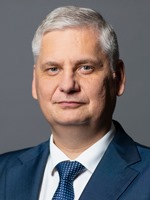 By Sergey Markedonov, Leading Researcher, MGIMO Institute
By Sergey Markedonov, Leading Researcher, MGIMO Institute
Future historians will definitely christen the year 2020 as the worldwide onset of coronavirus. It seems like tons of research articles and expert reports on the impact of the pandemic on the global economy and international political processes have been published. However, it is quite obvious that with the focus having been shifted towards the global perspective, the processes taking place in individual countries and regions appear to be falling out of sight. In the meantime, all of the conclusions drawn about the comprehensive implications of COVID-19 will remain somewhat schematic and generic without due consideration of their nuances and peculiarities. READ MORE
What’s Next in Karabakh…[Over]  By Benyamin Poghosyan, PhD, Chairman, Center for Political and Economic Strategic Studies By Benyamin Poghosyan, PhD, Chairman, Center for Political and Economic Strategic Studies
The April 21, 2020 statements of Russian foreign Minister Lavrov brought back Nagorno Karabakh issue to the forefront of expert discussions. However, Russian foreign minister did not reveal something special or unexpected. He just reiterated what pundits following the conflict settlement process had already known. Since May 2018 negotiations have been based on a phased approach. It envisaged the return of some territories to Azerbaijan and indefinite postponement of the determination of the Nagorno Karabakh final status. READ MORE
|
|